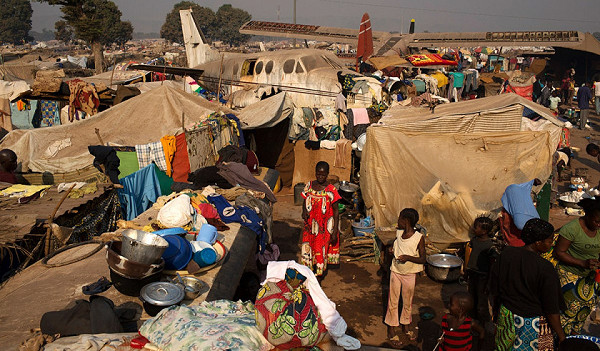Ghana, a land of natural beauty and abundant resources, grapples with a recurring nightmare every rainy season. The relentless annual flooding has become a grim reality for its people, inflicting not only substantial financial losses but also tragic loss of life. In this stark portrayal of Ghana's flooding dilemma, we delve into the devastating economic impact and the critical role of citizens behaviour in exacerbating this crisis. This is a clarion call for responsible action, a plea for a shift towards sustainable development and economic growth that hinges on our collective responsibility.
The Economic Toll
The financial cost of managing floods in Ghana is staggering. The country expends millions of dollars each year to cope with the aftermath of flooding. This includes investments in flood control infrastructure, disaster relief initiatives, and the rehabilitation of affected areas. Imagine the potential if these funds were redirected towards more productive sectors like education, healthcare, and infrastructure development.
Human Behaviour: The Root Cause
Human behaviour emerges as one of the principal catalysts behind Ghana's flooding woes. We have become a Nation of the Proverbial “Ostrich” with our heads deep down under the sand, playing it safe and have allowed citizens to often construct homes in flood-prone areas, obstructing natural water pathways and intensifying the problem. This practice jeopardizes lives and exacerbates the nation's financial burden. Most notable absence at the home of enforcement is “Grandpa, Town & Country Planning” who have abandoned his duties as the head of household. Urgent urban planning reforms are imperative, emphasizing the preservation of natural drainage systems to curtail this unending menace.
Improper disposal of plastic and solid waste, coupled with inadequate sewage systems, further fuels the flooding crisis. Blocked drains and water channels, choked with plastic and debris, disrupt the natural flow of water, resulting in overflow onto streets and into homes during heavy downpours.
The Human Cost
Perhaps the most heart-wrenching consequence of perennial flooding is the loss of precious lives. Annually, Ghanaians pay the ultimate price, leaving families shattered and communities in mourning. The human toll is beyond measure, compelling us to act collectively to prevent further tragedy.
While perennial flooding in Ghana is a complex crisis that demands immediate attention and unified action. The economic strain, loss of life, and environmental degradation linked to flooding are unsustainable. As responsible citizens, we must embrace a new mindset that incorporates conscientious urban planning, effective waste management, and
upgraded sewage systems. Our collective commitment is the cornerstone upon which socioeconomic development and sustainable economic growth can be built. It is this shared responsibility that will safeguard our beloved nation and ensure a secure and prosperous future for all generations to come.
Newsletter Subscription
Subscribe and get regular updates







